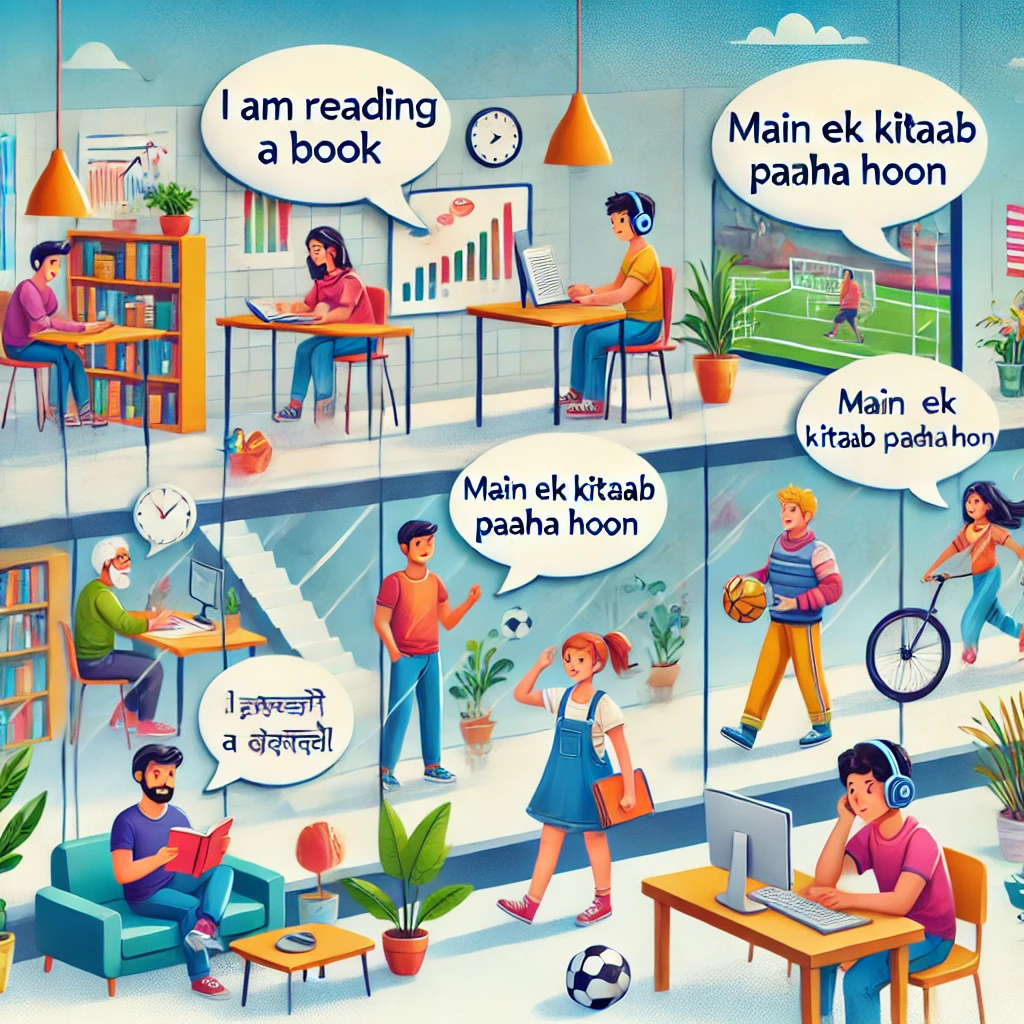Hindi Explanation:
हिंदी भाषा बोलने वाले बच्चों के लिए Present Perfect Tense सबसे कठिन Tense में से एक है। कई बार वे Simple Past Tense और Present Perfect Tense में अंतर नहीं समझ पाते। उदाहरण के लिए, वे "मैंने खाना खाया" (I ate food) के लिए "मैं खाना खा चुका हूँ" (I have eaten food) का गलत प्रयोग कर सकते हैं। समय के बोध को ठीक से व्यक्त करने में भी परेशानी आती है, जैसे "मैंने कल किताब पढ़ी" (I read the book yesterday) को "मैंने कल किताब पढ़ चुका हूँ" (I have read the book yesterday) कहना। इसके अलावा, "just", "already", "yet", "since", और "for" जैसे शब्दों का सही उपयोग करना भी मुश्किल होता है। "Have/Has" के साथ तीसरे रूप (past participle) का सही प्रयोग भी एक बड़ी चुनौती होती है। अभ्यास और समझ के साथ ही ये गलतियाँ दूर की जा सकती हैं।
English Explanation:
The Present Perfect tense poses significant challenges for Hindi-speaking English learners. A common error stems from confusing it with the Simple Past tense. For instance, they might incorrectly use "I have eaten food" where "I ate food" is appropriate. Grasping the nuanced temporal aspects is difficult; they may say "I have read the book yesterday" instead of "I read the book yesterday." Furthermore, using adverbs like "just," "already," "yet," "since," and "for" correctly proves problematic. Accurate conjugation of the auxiliary verb ("have" or "has") with the past participle is another major hurdle. Consistent practice and focused instruction are crucial to overcome these difficulties.
| English | Hindi | Roman Hindi |
|---|---|---|
| I have finished my homework. | मैंने अपना होमवर्क पूरा कर लिया है। | Mainne apna homework pura kar liya hai. |
| She has lived here for five years. | वह यहाँ पाँच सालों से रह रही है। | Wah yahan panch saalon se rah rahi hai. |
| They have just arrived. | वे अभी-अभी पहुँचे हैं। | Ve abhi-abhi pahunche hain. |
| Has he eaten yet? | क्या उसने अभी खाया है? | Kya usne abhi khaya hai? |
| We have never been to Paris. | हम कभी पेरिस नहीं गए हैं। | Hum kabhi Paris nahin gaye hain. |
| He has already left. | वह पहले ही चला गया है। | Wah pahle hi chala gaya hai. |
| I have seen that movie before. | मैंने वह फिल्म पहले देखी है। | Maine woh film pahle dekhi hai. |
| Have you finished reading the book? | क्या तुमने किताब पढ़ना पूरा कर लिया है? | Kya tumne kitab padhna pura kar liya hai? |
| She has been working hard lately. | वह हाल ही में कड़ी मेहनत कर रही है। | Wah hal hi mein kadi mehnat kar rahi hai. |
| They have known each other since childhood. | वे बचपन से एक-दूसरे को जानते हैं। | Ve bachpan se ek-dusre ko jaante hain. |


